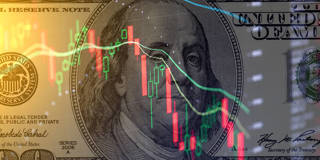John H. Cochrane
Says More…
This week in Say More, PS talks with economist John H. Cochrane, a senior fellow of the Hoover Institution and an adjunct scholar at the CATO Institute.
Project Syndicate: A year ago, you argued that surging inflation was forcing policymakers and commentators to abandon “wishful thinking.” Today, the inflation picture has become somewhat murky in the United States, and hopeful predictions from earlier this year – when price growth was slowing, and GDP and employment growth were holding on – are giving way to more cautious assessments. Are sanguine projections just more wishful thinking? How do you read the inflation signals of recent weeks?
John H. Cochrane: I try hard not to read weekly signals! Economics is really not about short-term forecasting or peering at the latest numbers. Economists are better at conducting “if-then” analysis and discerning longer-lasting forces. And on those fronts, it’s worth being explicit about how one views the world. My view, of course, is shaped by fiscal theory. In that view, we are largely inflating away the dramatic deficits of 2021-22. As we have seen, fiscal inflation comes without any change in interest rates, and, as we seem to see, it moderates without interest rates larger than inflation. But fiscal theory warns that we could be headed for a period of stubborn inflation, owing to higher interest rates and still-mounting deficits, for which there is no repayment plan. Other theoretical views come to different answers.
PS: “While interest-rate policies get headlines,” you wrote early last year, “the Fed is now most consequential as a financial regulator.” And in that capacity, it made serious mistakes after 2008 – mistakes on which it has been doubling down lately. The result is a financial system “oriented around dangerously misaligned incentives.” How much responsibility should the Fed bear for recent bank failures, and what would it take to “reverse the basic premise of a financial system in which the government always guarantees mountains of debt in bad times”?
JHC: The recent bank run triggered by the failure of Silicon Valley Bank proved that the regulatory framework is fundamentally broken. To my mind, the Treasury-market rescue, money-market-fund bailout, and corporate-bond-price guarantee of 2020 proved the same thing, but not everyone seems to have noticed those.
